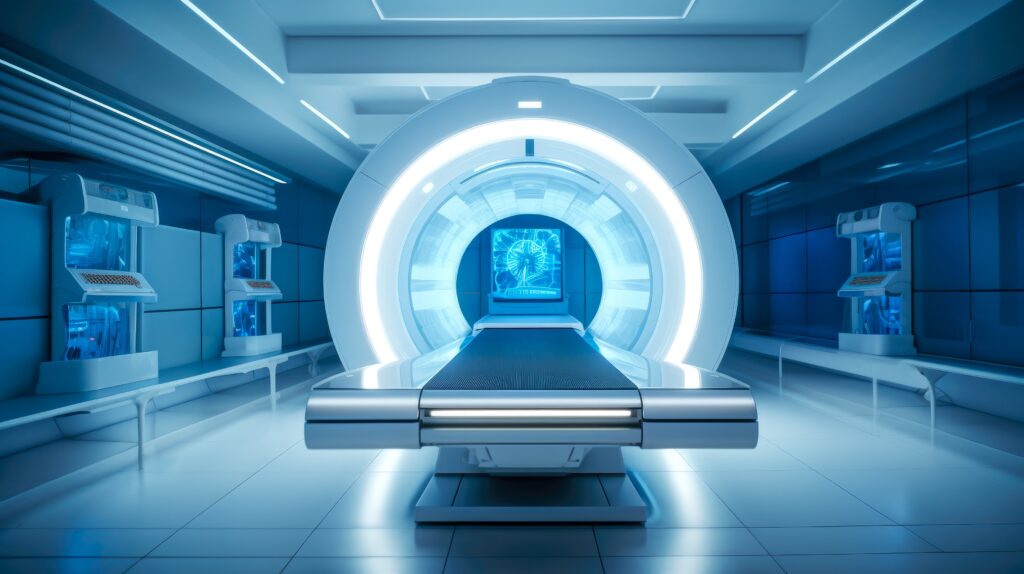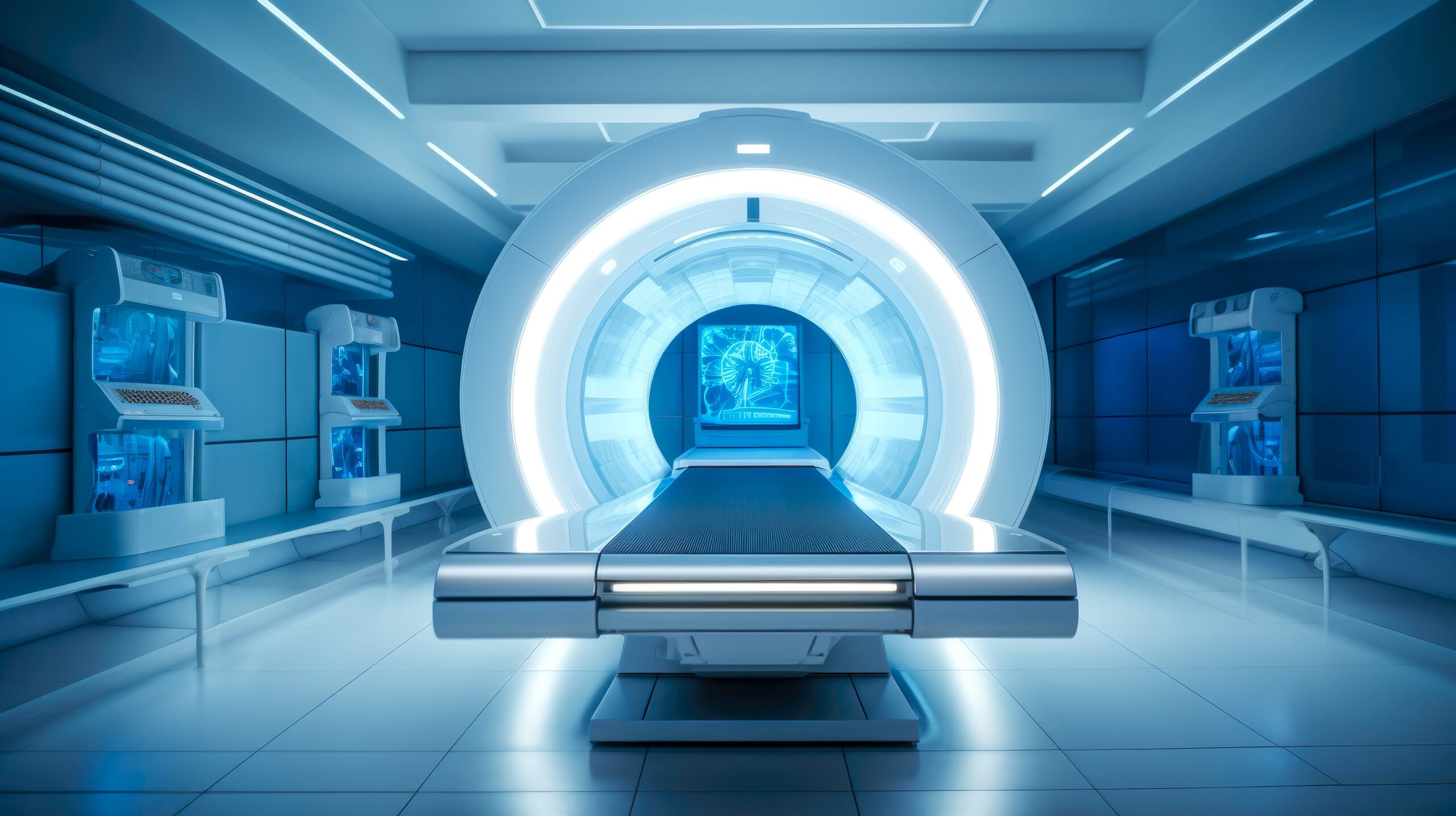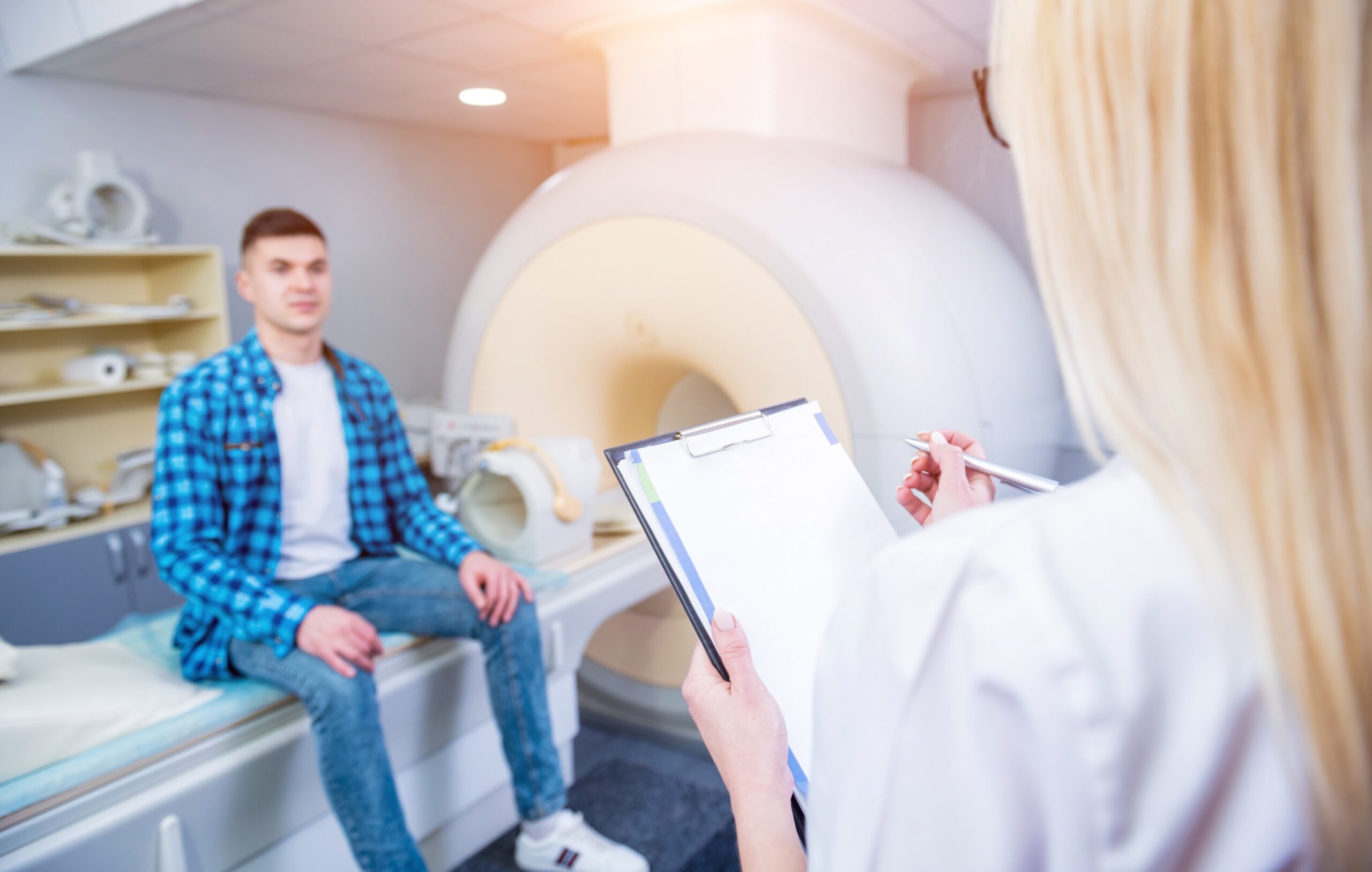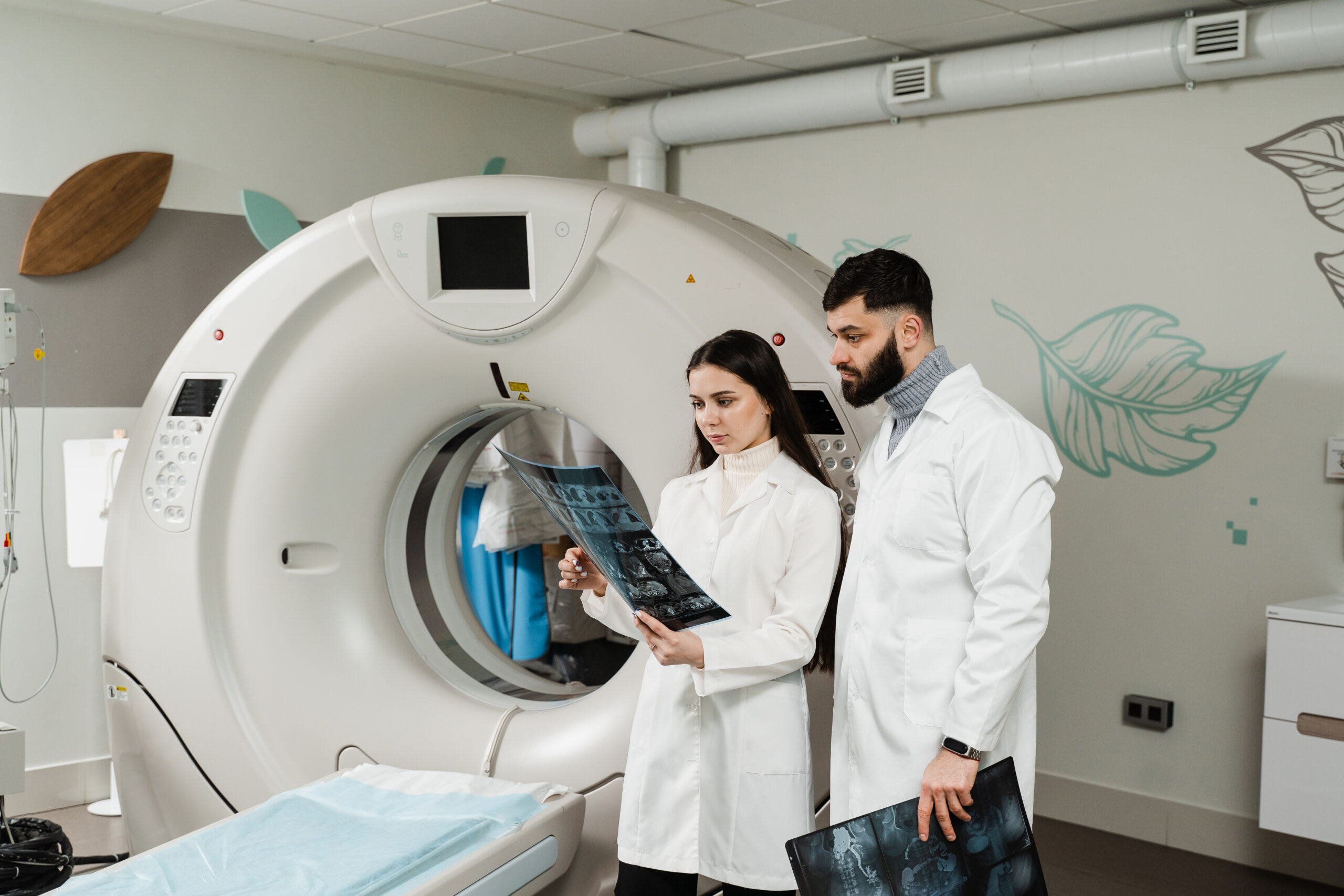Magnetic Resonance Imaging (MRI) is one of the most advanced and non-invasive diagnostic tools used in medicine today. By using strong magnetic fields and radio waves, MRI scans provide detailed images of the inside of the body, allowing doctors to diagnose a wide range of conditions without the need for surgery. However, not all MRI scans are the same. Depending on the area being examined and the condition being investigated, various types of MRI scans are used. In this blog, we will explore the different types of MRI scans, when each type is used, and the specific conditions they help diagnose.

Types of MRI Scans Explained: An Overview of MRI Technologies
MRI scans can be tailored to focus on specific areas of the body or to enhance the visibility of particular types of tissue. Here are the main types of MRI scans commonly used in medical imaging:
- Standard MRI (Conventional MRI): The most basic and commonly used MRI scan, this provides detailed images of the body’s internal structures, such as the brain, spine, muscles, and joints. It is particularly useful for diagnosing conditions in soft tissues, including injuries, tumors, and neurological disorders.
- Functional MRI (fMRI): Functional MRI is a specialized type of MRI scan that measures and observes brain activity. It tracks changes in blood flow and oxygen levels in the brain, allowing doctors to assess brain function in real-time. It’s primarily used for evaluating brain activity related to cognitive processes, motor functions, or planning brain surgeries.
- Diffusion Tensor Imaging (DTI): DTI is a type of MRI that focuses on mapping the pathways of white matter in the brain. It’s useful for studying neurological disorders and injuries like strokes, multiple sclerosis, and brain trauma. DTI helps doctors visualize the connections between different regions of the brain.
- Magnetic Resonance Angiography (MRA): This type of MRI is used specifically to view blood vessels. It is ideal for assessing the arteries and veins, detecting issues such as aneurysms, blockages, or narrowing of blood vessels. MRA is commonly used for cardiovascular problems and assessing blood flow.
- MRI with Contrast: Sometimes, a contrast agent (a special dye) is injected into the body to enhance the visibility of certain tissues or abnormalities. This is especially useful in detecting tumors, infections, or inflammation, as the contrast makes certain areas appear brighter in the scan.
- Cardiac MRI (CMR): A specialized MRI scan designed for heart imaging, Cardiac MRI focuses on evaluating the heart’s structure and function. It’s used to assess heart diseases, congenital heart defects, and other conditions like cardiomyopathy or heart valve problems.
- Breast MRI: Used as a supplemental tool to mammography, breast MRI is especially helpful for women at high risk for breast cancer. It provides detailed images of the breast tissue, which can help in detecting tumors that may not be visible on a standard mammogram.
- Spinal MRI: Spinal MRIs focus on imaging the vertebrae, spinal cord, and surrounding tissues. They are vital for diagnosing back and neck pain caused by herniated discs, spinal stenosis, tumors, or degenerative diseases of the spine.
When Each Type is Used: Determining the Right MRI for Your Condition
Choosing the right type of MRI scan depends on the area of the body being examined and the specific condition your doctor suspects. Here’s a breakdown of when each MRI scan is typically used:
- Standard MRI: Most commonly used for diagnosing issues in the brain, spinal cord, muscles, and joints. It is recommended when there is unexplained pain, injury, neurological symptoms, or tumors in these areas.
- Functional MRI (fMRI): Typically used for brain function studies, especially when evaluating cognitive disorders, brain injuries, or planning brain surgeries. It’s often used for patients with epilepsy, brain tumors, or those undergoing pre-surgical evaluations for brain conditions.
- Diffusion Tensor Imaging (DTI): Primarily used in neurological cases, such as after a stroke, in multiple sclerosis (MS), or for assessing traumatic brain injury (TBI). DTI helps in identifying abnormalities in white matter pathways that could impact brain function.
- Magnetic Resonance Angiography (MRA): Used when there are concerns about blood vessels, including suspected aneurysms, strokes, or peripheral artery disease. It’s ideal for assessing the vascular system, particularly in cases of cardiovascular issues or unexplained strokes.
- MRI with Contrast: Typically used when a doctor needs clearer views of soft tissues or to highlight areas of concern. It is used for detecting tumors, infections, and inflammation in organs like the liver, kidneys, or brain.
- Cardiac MRI (CMR): Best suited for individuals with known heart disease or symptoms like chest pain, shortness of breath, or heart failure. It can help evaluate the heart’s structure, function, and blood flow.
- Breast MRI: Recommended for women with a high risk of breast cancer or those with dense breast tissue that makes it difficult to detect abnormalities with traditional mammograms. It is also used for further evaluation of abnormalities found in other imaging tests.
- Spinal MRI: Often used when someone experiences back or neck pain that does not improve with treatment or when there is concern about neurological symptoms, such as weakness or numbness in the limbs. It’s critical for diagnosing conditions like herniated discs, spinal tumors, or degenerative disc disease.
Conclusion: Choosing the Right MRI Scan for Your Health
MRI scans are powerful diagnostic tools that offer non-invasive, detailed images of your body’s internal structures. With various types of MRI scans available, each one tailored for specific health concerns, it’s important to consult with your doctor to determine which scan is right for your situation. Whether you’re dealing with joint pain, heart disease, neurological disorders, or are in need of cancer screenings, MRI scans can provide essential information to guide your treatment and improve your overall health.
PET CT of Miami: Schedule Your MRI Appointment Today
At PET CT of Miami, we offer a wide range of advanced MRI scans to help diagnose and manage various health conditions. With state-of-the-art MRI technology, our team provides comprehensive imaging services for conditions ranging from neurological issues to musculoskeletal injuries and heart disease. Booking an MRI appointment is easy—simply visit our website and schedule your consultation online. Take the next step in proactive healthcare and get the answers you need with our expert imaging services.




